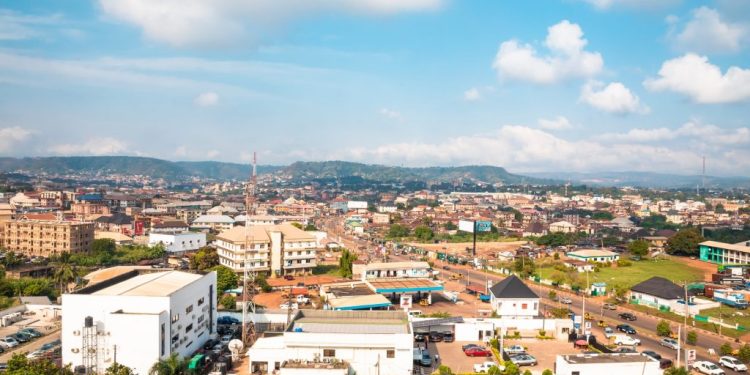In spite of the challenges facing real estate development in Nigeria, the sector has huge employment opportunities, investment potentials and guarantees returns on investments.
In the face of dwindling allocation and limited resources, the Nigerian government has successfully collaborated with private companies to develop housing projects.
According to a report released by PwC in 2019, the high value real estate market segment holds in value between $230 billion – $750 billion. Without a doubt, this is a clear indication that Nigeria’s real estate industry is viable.
Over the years, Nigeria has experienced rapid urbanisation. Nigeria’s real estate sector posted 3.85 percent growth in the second quarter of 2021, representing its highest growth in six years, thanks to the full re-opening of the economy and increased investment interest. the 3.85 percent growth is the sector’s highest second quarter growth since the 4.95 percent growth in q2’2014.
The experts, who spoke at an event hosted by the Nigerian British Chamber of Commerce, NBCC with the theme, ‘Nigerian economic outlook 2022: intersection with the real estate sector –top real estate trends to watch’ noted that despite the obvious effect of inflation, foreign exchange challenges, insecurity, and high unemployment rates, Nigeria’s economic fundamentals remain strong.
They argued that despite a range of pressing challenges, Nigeria’s real estate sector is set to continue expanding in the future, albeit at a slower pace than over the past decade. They also posited that the way forward for investors looking to invest in the market would be through the residential and industrial sub sector.
He hinted that the sector will be a key driver for the country’s recovery alongside agriculture, agribusiness, agric technology, healthcare and fintech sectors.
He cautioned that the growth would depend on the right policies and improved security in the country.
Corroborating his views, Chairman of the NBCC Construction and Real Estate Group, Hakeem Ogunniran, disclosed that regulatory and compliance intensity would rise on the back of the collapsed 21-storey building in Ikoyi in November 2021, adding that it would lead to the re-launch of the Certificate of Fitness For Purpose.
Oguniran noted further that the Magodo’s case that threw up a 12-year land judgment early this year might incentivise other judgment creditors. He pointed to other land cases like the unresolved Osapa London that has been on since 2013, and the multiple ongoing suits involving major landowning families in Ajah.
“There will be regulatory and compliance intensity, with heightened title uncertainty in high profile locations. However, technology can be expected to take center stage in the sector this year, with extremely strong prospects for growth in comfort homes, led by demand from first-time homebuyers, millennials, young families, and empty nesters” he emphasised.
Ogunniran, who is also the CEO, Eximia Realty, observed that real estate thrives off the back of strong macroeconomic fundamentals, adding that the 25 percent homeownership rate in Nigeria reflects the challenging operating environment in the country.
On her part, the special adviser to the Lagos State governor on housing, Toke Benson-Awoyinka, harped on the need to curb fraudulent practices and emphasised the state government’s commitment to sanitising the industry.
“This year is going to be different as Lagos is going to tackle fraudulent activities in the real estate sector this year. We will name and shame when the time comes because the returns on investment is unbelievable so there’s no reason to defraud people,’’ Benson-Awoyinka said.
She said the state would, in a few weeks, conclude the foreclosure clause in its mortgage law to build investors’ confidence and provide access to investments when there’s a default in the mortgage payment.
Benson-Awoyinka emphasised the need for individuals that want to buy land to do their due diligence and engage the services of a lawyer when purchasing properties to avoid cases of fraudulent land allocation.
“There’s no clear title of land in Lagos called ‘excision in process’ as this means such land has not been allocated. You must search at the land bureau to ensure that a property has a clean title before you begin any transaction to avoid being scammed,” she advised.
Also, Bisi Adeyemi, NBCC president and chairman of the council, observed that the real estate sector had become a major contributor to the country’s economic growth this year.
“The major objective of this event is to examine the opportunities, challenges, and, indeed, the threats in the real estate sector in 2022. The sector showed positive GDP growth in 2021 and has been identified as one of the sectors to look out for this year. We have assembled distinguished subject matter experts that will ensure we all leave here better informed,” she assured.
Source : Vanguard
































